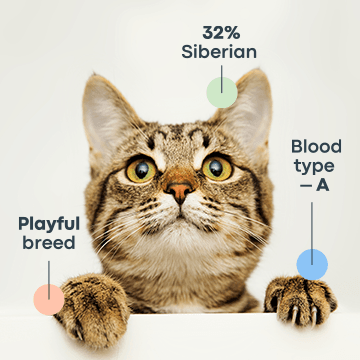In the vast world of canine vocabulary, precise terminology carries significant importance. The term for a female dog, often misunderstood or misused, is not only a matter of correct language but also of showing respect.
This article delves into the answer to “What is a female dog called?”, exploring its historical roots, its relevance in the field of veterinary medicine, and the alternatives like “queen” that have arisen over the years. An understanding of these terms not only broadens our knowledge but fosters a respectful communication environment for our beloved canine companions.
The History of Female Dog Terminology
The term for a female dog, "bitch," has been used since the earliest days of English-speaking society. The word comes from Old English "bicce," which was first documented around 1000 AD.
The shift from “bitch” to “mistress” began with changing societal norms and the growing discomfort with the derogatory connotations associated with the former term. The word "mistress,” while it carries various connotations, is derived from the Old French word "maistresse,” which means "a woman in authority.” It was used as a polite form to address or refer to a female dog, particularly in the context of breeding.
Understanding the Scientific Term for a Female Dog: “Bitch”
The term used in scientific and professional contexts for a female dog is “bitch.” This term is often used in the arenas of veterinary science and canine breeding to specify the gender of the dog.
It is a neutral, descriptive term that is understood universally across scientific communities. The use of the term “bitch” is important for clarity and precision in scientific communication, particularly in research studies or professional discussions about dogs' breeding, behavior, and health.
Why “Bitch” is Not a Derogatory Term When Used Correctly
In the realm of canine terminology, a female dog is formally referred to as a "bitch.” Yet, the use of this term outside of its canine context often carries a negative connotation, which can lead to ethical discomfort. People are usually taken aback by the term due to its derogatory usage in popular culture and language, where it is often used to insult and belittle.
This incongruity between formal and colloquial usage has some ethical implications. It is essential to maintain respect and sensitivity in language, avoiding terms that may cause offense or discomfort. Hence, in casual conversation, it may be more appropriate to simply refer to a female dog as just that, a “female dog,” in order to avoid any unintentional offense.
Alternative Terminology for Female Dogs
When addressing female dogs, it's important to be mindful of your language choice. Here are a few alternative popular dog names and terms that you can use:
Female Dog: This term is straightforward and accurate without any negative connotations.
Lady Dog: This term adds a touch of respect and propriety. It's a more endearing and gentle way to refer to a female dog.
Queen: A term that carries an element of esteem, showing respect and admiration for the canine.
Dame: This term, often used to denote a woman of rank or authority, can also be applied to a female dog to show respect.
Fidoess: A playful term derived from “Fido” - a common name for dogs - and the feminine suffix “-ess.”
Remember, your choice of words carries weight. Always opt for terminology that shows respect and affection for our canine companions.
Why Using the Correct Terminology is Important in Veterinary Medicine
People often wonder “What is it called when you fix a female dog?” Using correct terminology, such as "spaying" for the surgical removal of the reproductive organs in a female dog, ensures clear communication among veterinary professionals, preventing misunderstandings that could lead to medical errors.
Proper terminology reduces the risk of misdiagnosis and medical mistakes, as precise definitions and descriptions are paramount in veterinary medicine.
The Significance of Proper Terminology in Dog Breeding and Showing
Understanding and using proper terminology is of paramount importance in the dog breeding community. The specific terms used hold significant meaning and provide clarity to discussions and documentation related to canine reproduction, health, and genetics.
For instance, the procedure to sterilize a female dog is referred to as "spaying,” which breeders, veterinarians, and dog owners should all be familiar with. Utilizing the correct terminology ensures accuracy, promotes effective communication, and helps maintain the high standards expected in dog breeding and showing the world.
Using the Right Term in Everyday Conversation: Tips for Dog Owners
What is a young female dog called?
A young female dog is commonly referred to as a puppy. It's crucial to use this term appropriately when discussing your new family member with others, as it indicates her age and the level of care she may require.

What is a mature female dog called?
A mature female dog is scientifically referred to as a bitch. However, in everyday conversation, this term might be replaced with “female dog” to avoid any potential confusion or offense.
You can also use these terms for mature female dogs:
Adult Female Dog
Mature Bitch
Adult Canine Female
Mature Female Canine
What is a female dog in heat called?
When a female dog is in her reproductive cycle, she is said to be “in heat” or “in season.” This is a critical term to understand and use correctly, especially when engaging with veterinary or dog breeding professionals.
Common Misconceptions About Female Dog Terminology: Debunked
Spaying and Neutering Are the Same
While both refer to the surgical sterilization of an animal, the term “neutering” technically relates to male dogs, whereas “spaying” is the correct term for the procedure performed on female dogs.
Spayed Female Dogs will Gain Weight
A common myth is that spaying causes weight gain in female dogs. In reality, any weight gain is typically the result of decreased activity and overfeeding post-surgery, rather than the process of spaying itself.
Spaying Alters a Dog's Personality
Many believe that spaying a female dog will significantly change her personality. While hormonal changes can slightly affect behavior, spaying does not fundamentally alter a dog's temperament or personality.
Conclusion
In conclusion, using the correct terminology when discussing female dogs not only promotes respectful and accurate communication but also helps dispel common myths. Misconceptions surrounding terms like “spaying” and “neutering” often lead to unnecessary worries and misinformation.
By correctly understanding and employing these terms, we can better comprehend and care for our canine companions. Hence, accurate vocabulary is a cornerstone of responsible pet ownership.
Frequently Asked Questions
What is a female dog called?
A female dog is usually referred to as a "bitch,” although the term "female dog" can also be used. Terms such as "lady dog" and "queen" are often used to signify respect and admiration for our canine companions.
What is it called to fix a female dog?
The process of fixing a female dog is known as "spaying.” This surgical procedure involves the removal of the ovaries and uterus, thus permanently preventing pregnancy. Spaying also protects female dogs from certain health issues such as mammary cancer and pyometra.
What is a spayed female dog called?
A spayed female dog is generally called a "spayed female dog" or "spayed bitch.” If you're looking for unique terminology, some people might use phrases such as "altered female," "fixed female," or "desexed bitch." These terms communicate the same idea and can provide some variety in your discussions about canine care.
What female dog name means loyal?
"Fidelity" is an excellent name for a female dog that signifies loyalty and faithfulness. Other names such as "Loyalty,” "Trust,” or "Faithful" may also be considered. You can also consider names like "Leala," which means loyal in old French, or "Imani,” a Swahili name that translates to faith or loyalty.
What is the proper name of a female dog?
The proper name of a female dog is "bitch.” This term is used in both scientific and everyday contexts to refer to adult female canines.





